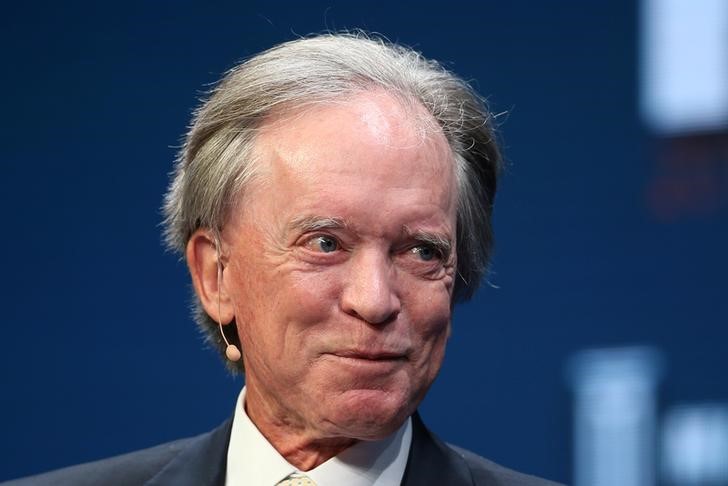(Bloomberg) -- Bill Gross, Ray Dalio and Paul Tudor Jones may have to wait for their bear market.
The sell-off in U.S. Treasuries has stalled this month after yields looked set to pass 3 percent for the first time in over four years, while German bunds have rallied to reverse half the year’s rise in yields. That’s partly because of sluggish inflation and increased concerns over a trade war. Three Federal Reserve interest-rate increases are already priced in, while the European Central Bank is not giving any clues on the timing of its hikes.
“Conflicting forces -- supply, inflation and the ECB’s asset-purchase program -- should keep ranges intact for some time” for bund yields, said Charles Diebel, a money manager at Aviva (LON:AV) Investors, which oversees 353 billion pounds ($491 billion) in assets. “Global yields will unlikely break out until the third quarter at the earliest.”
Yields on both sides of the Atlantic climbed rapidly earlier this year, with the prospect of tightening monetary policy, stronger growth and signs of a pickup in inflation forcing investors to abandon long-held bullishness. Hedge fund veteran Tudor Jones this month joined fellow investment big-hitters Dalio and Gross in heralding a bear market in fixed income.
German 10-year yields have fallen 9 basis points this month to 0.57 percent, having touched a high of 0.81 percent in early February. Those on their U.S. counterparts have dipped in March to around 2.85 percent, after reaching 2.95 percent a month ago.
No Tantrum
“Given the still subdued inflation picture globally, a general lower risk appetite and a market that will most likely buy into the ECB ‘no taper tantrum’ story, we have postponed most of the expected rise in yields until 2019,” Danske Bank A/S strategists Arne Lohmann Rasmussen and Morten Ehlers wrote in a note to clients. “We still see no ECB hike before 2Q 2019.”
Even a deluge of European supply did nothing to prevent the upswing in German bonds, while their peripheral peers in Spain and Italy have also remained resilient to political risk following the latter’s election on March 4. For Commerzbank AG (DE:CBKG), continued asset purchases from the ECB are denting the free float of tradeable government securities, supporting European debt.
“With scarcity spreading beyond bunds even at lower QE purchases, strategic EGB tighteners and swap spread wideners hold more upside,” wrote head of rates strategy Michael Leister, who estimates that ‘sticky investors’ such as central banks own over 60 percent of core bonds. “Supply-demand imbalances on sovereign bond markets are moving to center stage.”
